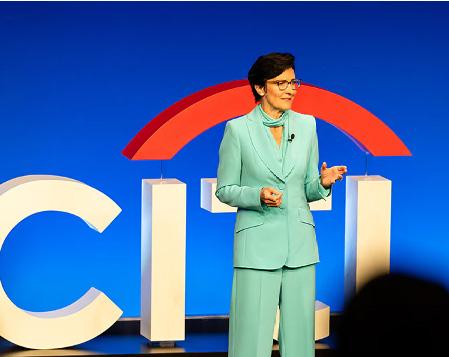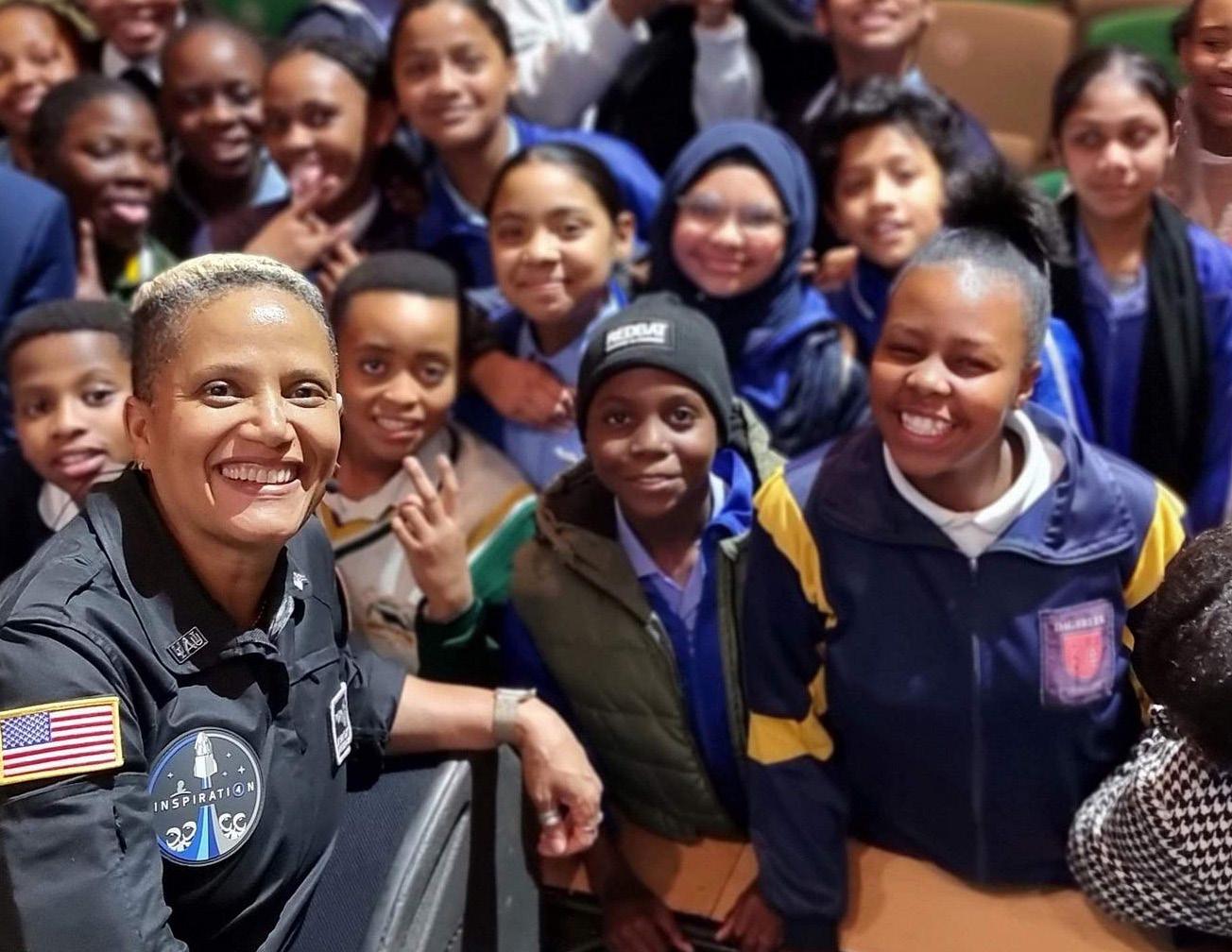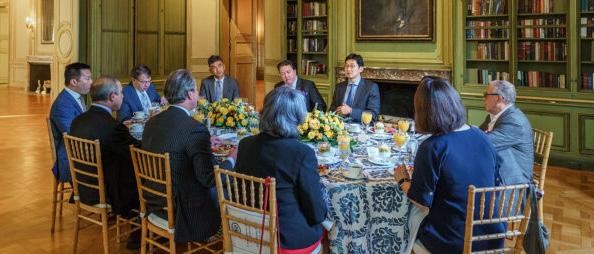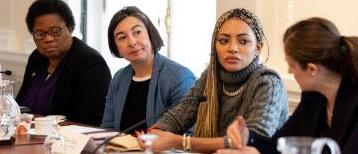



Meridian’s Strategy + Vision for the Next Decade 2025-2035







Meridian’s Strategy + Vision for the Next Decade 2025-2035



The American Council on Education buys Meridian House as headquarters for the Washington International Center, housing organizations advancing Department of State exchanges.

The Department of State approves a proposal for Meridian House International to implement the International Visitor Leadership Program, the government’s premier professional exchange program.

1980s
Meridian purchases the White-Meyer House through a $3 million capital campaign to expand its campus.

Meridian has been a cornerstone of international collaboration since we were founded in 1960 as a partner of the U.S. Department of State to run exchange programs during the Cold War. Over the last 65 years, we’ve connected America with the world by cultivating relationships with global leaders, including over 180 heads of state.
We have established a strong organization with a vital mission and vibrant culture by developing new diplomatic, cultural and convening programs; building diverse global networks; and expanding our historic campus. Our nonpartisan, independent stance has made us a place where people can come together to find common ground.
The next decade will bring profound shifts—from great power conflicts to tech disruptions and the escalating impacts of climate change—that will fundamentally redefine global dynamics. Meridian is evolving to keep pace.
Meridian continues to serve as an international cultural gateway through art exhibitions, performances and cultural exchanges. Meridian expands to working on other U.S. government public diplomacy programs beyond the International Visitors Leadership Program.


Our vision builds on our legacy and track record of experience and positions Meridian to tackle the critical challenges of tomorrow by aligning our strengths with the needs of a world in flux. We’re committed to scaling our efforts and resources to preserve and advance America’s critical role in building a better shared future by empowering the next generation of leaders.
The Center for Diplomatic Engagement is founded to accelerate collaboration between the international diplomatic corps and U.S. public and private sector leaders.

The Center for Corporate Diplomacy is founded to advance international collaboration through private sector engagement.


However, shifting global dynamics and emerging challenges demand approaches that go beyond traditional diplomacy.

New channels of collaboration are a must if we want longterm international partnerships to survive short-term political turbulence. With volatility affecting more people, leaders need the global insights, networks and resources to navigate an increasingly chaotic geopolitical landscape.


More
Americans— and people around the world—are questioning the importance of international engagement.
At a time when diplomacy is crucial, bipartisan support and government resources are no longer guaranteed. Leaders from beyond government— business, science and tech—need to step up and help address these global challenges.
Countries that once aligned with America are now hedging their bets, looking to nations that have a completely different vision for the future.
Authoritarian regimes are rewriting the playbook, using new battlegrounds like AI, space, energy and critical minerals to expand their influence. To tackle these complex, emerging threats, we need stronger collaboration between the U.S., its allies and the private sector.

We’ve learned that diplomacy can’t just be left to governments. They need partners; the challenges are too complex, resources are stretched, and short-term global conflicts interfere with long-term strategies. Meridian is stepping up with a new framework: Open Diplomacy.
Open Diplomacy is an expansive, inclusive way of approaching global problems, connecting
leaders across borders, industries, and political parties to tackle the world’s toughest challenges. Think of it like open-source software or blockchain—decentralized, resilient, and designed to withstand political disruptions.
At the core of this framework are leaders from business, science and technology, sports and culture, cities and states and more beyond traditional
channels of diplomacy. Leaders with fresh insights and real-world experience. By expanding the diplomatic ecosystem to include these dynamic voices, we can address challenges no single government or organization can manage alone. But for this to work, you need a hub, a connector. And leaders need the insights, networks and resources to navigate a global future. That’s where Meridian comes in.


- AMBASSADOR STUART HOLLIDAY, CEO, MERIDIAN
We identify and invest in the next era of high-potential leaders from key sectors—the new diplomats—leveraging their unique experiences to tackle complex global issues and strengthen international relationships. We’ve identified four key sectors that, alongside government and diplomats, offer the greatest opportunity to drive meaningful change and build long-term


partnerships that foster economic stability.

Science, Technology
Their expertise and breakthroughs shape global policies, drive progress, and address complex challenges like climate change, cybersecurity, and public health.

Governors and mayors build meaningful collaborations that drive change at the community level.



Students and emerging leaders bring fresh thinking, a longview, and passion for creating change to modern diplomacy.








Diplomacy is cross-cutting, encompassing a broad range of topics. To sharpen our impact, we’ve identified three areas where we can drive the greatest change.
While we aren’t limiting ourselves to a narrow set of issues, we’re zooming in on those that matter most to the leaders we work with —issues that demand international collaboration but lack established channels. These new frontiers of diplomacy include space exploration, artificial intelligence, critical minerals, and more.
collaboration on shared challenges
Why this matters
The stability of alliances and partnerships are essential to global security and prosperity. Borderless challenges— ranging from climate change to emerging technologies—will shape global dynamics for the next generation.
Our programs build more durable international partnerships, safeguard democratic principles and strengthen civic engagement.
Why this matters
American investment is critical for sustainable development, but it’s up against big challenges. Business decisions on supply chains, investments and stances on environmental and social issues are shaping the future—and are central to maintaining U.S. leadership on the global stage.
Meridian teams up with the private and public sectors to strengthen U.S. competitiveness, driving sustainable, inclusive growth and building more resilient economies worldwide.
Preparing leaders to navigate a complex global future
Why this matters
Leaders across all sectors need to develop geopolitical resilience—the ability to navigate and adapt to rapidly changing global dynamics—to ensure the long-term stability of their businesses and organizations.
This is not just an imperative for an organization’s bottom line; it is integral to American diplomacy and our country’s ability to lead in the world.

Through our global education and exchange, convening, and culture programs, we identify, equip and catalyze leaders to advance diplomacy by solving global challenges and building international partnerships.



We identify high-potential American and international leaders who represent the next era of leaders in diplomacy.
We provide leaders with the global networks, insights and resources to be effective. Our programs are an “on-ramp” to connect leaders with their government and diplomatic counterparts.
We create an environment for collaboration that fosters trust and drives action on global challenges. In turn, our work leads to:
• Alliances and Partnerships
• U.S. Competitivness
• Geopolitical Resilience

The programs and initiatives in our portfolio support our mission, goals and strategic priorities. Moving forward, we will build on our long-standing partnership with the U.S. Department of State to develop programs—public-private partnerships and independent, Meridian-led programs—to advance strategic priorities with the support of private philanthropic partners.
1 Strengthen Alliances and Partnerships

U.S. Government Exchanges
• International Visitors Leadership Program
• AI & Cybersecurity Programs
• Journalism Exchange Programs

Diplomacy Accelerator
• Space
• Emerging Technologies

• Subnational Culture
• Culturefix (Flagship Convening)
• Next Level Hip-Hop Diplomacy
• CultureCorps
2 Increase U.S. Competitiveness

Global Business Networks
• Corporate Council
• Global Business Briefings

Public-Private Partnerships
• State Department Working Groups
• USTDA Reverse Trade Missions

Meridian Summit (Flagship Convening)
3 Build Geopolitical Resilience

Global Education
• Insights@Meridian
• Corporate Diplomacy Global Leaders Training
• Cross-Cultural Delegations

DiplomacyRISE: Skills Training
• Next Generation Foreign Service Fellowship
• Diplomacy for Scientists Training

Diplomacy Forum (Flagship Convening)

We recognize that the challenges America faces in the world go beyond the capacity of any single organization. Our strategy relies on the partnership of individuals and institutions of all kinds.
By working together with partners in the private sector, philanthropic community and government, Meridian will be a force multiplier for American diplomacy and global engagement. We look forward to collaborating with you to empower the next era of leaders to advance diplomacy for a better shared future.


“The new diplomats are business leaders, governors, mayors, artists, athletes, scientists and astronauts. Meridian is expanding the diplomatic ecosystem to include these perspectives and experiences critical to global problem solving.”
- AMBASSADOR STUART HOLLIDAY, CEO, MERIDIAN INTERNATIONAL CENTER